Another Thin Man

Brief Synopsis
Cast & Crew
W. S. Van Dyke Ii
William Powell
Myrna Loy
Virginia Grey
Otto Kruger
C. Aubrey Smith
Film Details
Technical Specs

Synopsis
After Colonel MacFay frantically summons them to his Long Island estate, amatuer detectives Nick and Nora Charles arrive to find the house under heavy guard and the colonel under threat of death by his former employee, Phil Church. Among MacFay's house guests are his adopted daughter Lois and her fiancé, Dudley Horn, who explains that Church blames the colonel for sending him to jail, and the macabre incidents that have been occurring are a result of Church's revenge attempts. That night, the colonel is murdered and Church disappears. As the police interrogate the witnesses, gunshots are heard in the night and Horn is killed. Back in the city, a mysterious caller who promises to produce Church's Cuban accomplice, "Dum Dum," directs Nora to the Rio Club, and Nick, acting on a clue uncovered at Church's girl friend Smitty's apartment, also turns up at the club. There, Nick learns that Church had a second girl friend, Linda Mills, and he goes to investigate her apartment, but finds the girl missing. The next day, Church appears at the Charles' apartment and threatens to harm Nick unless he abandons the case. As he escapes across the rooftops, Church is shot and killed, and the police are summoned. Nick then explains to the puzzled assemblage that Church did not kill MacFay. As he re-stages the shooting, Nick explains that Church's accomplice, Linda Mills, killed the colonel, and Nick then unmasks Lois as Linda. Nick continues that Lois, tired of playing the good daughter, led the life of a moll and killed her father for his money. Once Horn began to suspect her of the crime, she killed him, and Church became her third victim when she began to suspect him of double-crossing her over Smitty.

Director
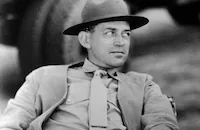
W. S. Van Dyke Ii
Cast

William Powell

Myrna Loy

Virginia Grey

Otto Kruger

C. Aubrey Smith

Ruth Hussey
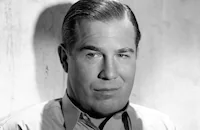
Nat Pendleton
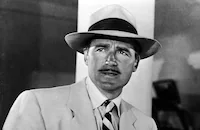
Patric Knowles

Tom Neal
Phyllis Gordon

Sheldon Leonard

Don Costello

Harry Bellaver
William A. Poulsen

Muriel Hutchison
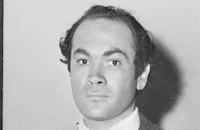
Abner Biberman

Marjorie Main
Asta
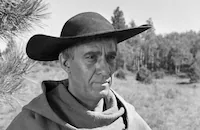
Martin Garralaga

Alexander D'arcy
Frank Sully
Horace Macmahon
Nell Craig
Milton Kibbee
Thomas Jackson
Walter Fenner
Edward Gargan
Joseph Downing
Matty Fain
Bert Roach

Shemp Howard
Nellie V. Nichols
Claire Rochelle
Doodles Weaver
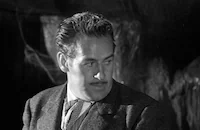
Roy Barcroft
Joe Devlin
Milton Parsons
Dick Elliott

Nestor Paiva
Gladden James
Murray Alper
Charles Brokaw
Frank Coletti
Edwin Parker

Eddie Gribbon
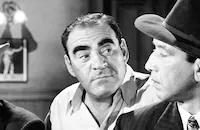
Ralph Dunn
George Guhl
Paul "tiny" Newlan
Paul E. Burns
Jack Gardner
Anita Camargo
Charles Sherlock
Guy Rett
Albert Morin
Alphonse Martell
Eddie Buzzard
Jack Clifford
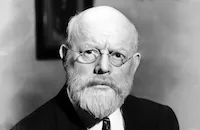
Howard Mitchell
William Pagan
Lee C. Shumway
Stanley Taylor
Frank Moran
James Guilfoyle
Richard Calderon
James G. Blaine
Carmen D'antonio
Rudolph Medina
Miguel Fernandez
Ramon Ros
Fred Valasco
Rosemary Grimes
Blanca Vischer
Sandra Andrews
Tina Menard
Crew
Hugh Boswell
John S. Detlie
Cedric Gibbons
Frances Goodrich
Albert Hackett
Dashiell Hammett
Eddie Larkin
Anita Loos
Oliver T. Marsh
Rene And Estelle
John Seitz
Douglas Shearer
Frederick Y. Smith
Hunt Stromberg
Dolly Tree
Edward Ward
Edwin B. Willis

Photo Collections
Videos
Movie Clip



Trailer
Hosted Intro



Film Details
Technical Specs

Articles
Another Thin Man
The Thin Man series has proven to be remarkably durable, and the third entry, Another Thin Man (1939), is no exception. This is all the more surprising considering the behind-the-scenes problems that almost kept the film from being made.
The script and a crew were ready to start filming early in 1938 when a problem arose concerning William Powell's health. It wasn't revealed at the time, but he was diagnosed with cancer. It was another personal blow to the actor who was still grieving over the sudden death of his fiancee Jean Harlow the previous year. However, successful operations in March 1938 and January 1939 eventually allowed Powell to overcome the disease and his doctors permitted him to return to work in the fall of 1939. (In the meantime, he had to pass on playing Maxim de Winter in Hitchcock's Rebecca.) As for Myrna Loy, she had just returned from London where the outbreak of World War II forced her back to the States.
Powell was given a standing ovation by the cast and crew on his first day on the set of Another Thin Man. According to author Charles Francisco in the biography, Gentleman: The William Powell Story, "Powell, looking remarkably fit and tanned, seemed embarrassed by the attention. He held up his hands and the familiar grin began to play at the corners of his mouth as he tried to think of something funny to say. The applause stopped, and Bill found that he couldn't speak. Myrna Loy rushed over to him and gave him a kiss and a big hug. Woody Van Dyke supplied the proper ending to the emotionally charged scene. 'All right,' he bellowed, 'what are we wasting time for? Let's get to work.'" Director Van Dyke (veteran of the previous two films) made allowances for Powell's weakened condition, insisting filming last only six hours a day and working on four soundstages with double crews to compensate for the shorter working time. The film was released in November 1939 and became one of the year's highest-grossing films.
Another Thin Man was based on a story by Dashiell Hammett, who wrote the original novel. Like the previous Thin Man films, the script was written by four-time Oscar nominees Frances Goodrich and Albert Hackett, but it was their final contribution to the series. In her autobiography, Being and Becoming, Loy recalled the duo, stating, "Do you know I never saw them at Metro? It's terrible, really, but unless they sent for the writers to get us out of a hole, we seldom saw them on the set....I didn't meet the Hacketts until I moved to New York in the fifties. We became friends, I'm happy to say, and Albert facetiously explained one day why they didn't write the last three Thin Man pictures: 'Finally I just threw up on my typewriter. I couldn't do it again; I couldn't write another one.' Perhaps we all should have concurred; those last three never really touched the pervious ones."
Producer: Hunt Stromberg
Director: W. S. Van Dyke II
Screenplay: Frances Goodrich, Albert Hackett, Anita Loos, Dashiell Hammett (story)
Cinematography: William Daniels, Oliver T. Marsh
Film Editing: Fredrick Y. Smith
Art Direction: Edwin B. Willis
Music: Edward Ward
Principal Cast: William Powell (Nick Charles), Myrna Loy (Nora Charles), Virginia Grey (Lois MacFay), Otto Kruger (Van Slack), C. Aubrey Smith (Colonel Burr MacFay), Ruth Hussey (Dorothy Waters).
BW-103m. Closed captioning.
by Lang Thompson

Another Thin Man
Virginia Grey (1917-2004)
She was was born in Los Angeles on March 22, 1917, and was exposed to the film industry at a very young age. Her father, Ray Grey, was a Keystone Cop and acted in several other of Mack Sennett's comedies with the likes of Mabel Normand, Dorothy Gish and Ben Turpin. When her father died when she was still a child, Virginia's mother encouraged her to join the acting game and audition for the role of Eva for Uncle Tom's Cabin, a big budget picture for Universal Studios in the day. She won the role, and acted in a few more pictures at the studio: The Michigan Kid and Heart to Heart (both 1928), before she decided to temporarily leave acting to finish her schooling.
She returned to films after graduating from high school, and after bouncing around Hollywood doing bits for various studios, she hooked up with MGM in 1938. Her roles in her first few films were fairly non-descript: In Test Pilot and Ladies in Distress (both 1938), she did little more than look pretty, but in the following year she had scene-stealing parts in The Women (upstaging Joan Crawford in a delicious scene as a wisecracking perfume counter girl) and as the suffering heroine in Another Thin Man (both 1939).
Despite her versatility (she could handle comedy or drama with equal effectiveness), MGM would cast her in some above-average, but hardly starmaking movies: Whistling in the Dark, The Big Store (both 1941), and Tarzan's New York Adventure (1942). She left MGM in 1943 and became a freelance actress for several studios, but her material as a leading lady throughout the '40s were mediocre: Swamp Fire, House of Horrors (both 1946), and Mexican Hayride (1948) were sadly the more interesting films in her post-MGM period. But by the '50s she was a well-established character actress, appearing in fairly big-budget pictures: All That Heaven Allows, The Rose Tattoo (both 1955), Jeanne Eagels (1957).
In the '60s, Grey turned to television and found work on a variety of hit shows: Wagon Train, Peter Gunn, Bonanza, My Three Sons, I Spy, and several others; plus she also captured a a couple of notable supporting parts in these films: Madame X (1966), and Airport (1970), before retiring completely from acting in the early '70s. She is survived by her sister, Lorraine Grey Heindorf, two nieces and two nephews.
by Michael T. Toole
Virginia Grey (1917-2004)
Quotes
I got rid of all those reporters.- Nora Charles
What did you tell them?- Nick Charles
We're out of scotch.- Nora Charles
What a gruesome idea.- Nick Charles
What's the idea of the kid?- Gatekeeper
Well, we have a dog, and he was lonesome. That was the idea, wasn't it, Mummy?- Nick Charles
Trivia
Rafael Storm replaced Alexander D'Arcy as the gigolo during the retakes.
The placard outside the West Indies Club advertised the dance team as Rene y Estela, but the opening credits anglicized it as Renee and Stella. They were real headliners at New York's Havana-Madrid Club.
Notes
The working title of this film was The Thin Man Returns. It was the third film in the Thin Man series. According to a October 9, 1939 M-G-M "Notice of Tentative Credits" (located in the AMPAS production file for this film), Anita Loos was a contributing writer on the screenplay. M-G-M press releases contained in the AMPAS production files note that the dance team of Rene and Estelle were headliners at New York's Havana-Madrid Club. Although an October 1939 Hollywood Reporter news item states that Rafael Storm was "assigned a role for retakes," his appearance in the released film has not been confirmed. According to news items in Hollywood Reporter in 1938, actors Reginald Gardiner and Melvyn Douglas were considered as replacements for William Powell in The Thin Man series when a serious illness caused delays in the start of this film. Modern sources add that this film marked Powell's return to M-G-M after a two-year bout with cancer. From the completion of Double Wedding in 1937 until Another Thin Man in 1939, Powell appeared in only one film, Fox's 1938 film The Baroness and the Butler. Because of his weakened condition, he had to work a shortened workday. To accommodate Powell, director W. S. Van Dyke II doubled the crew size to speed up filming and demanded that all the principal actors be furnished with stand-ins for the lighting chores between setups. For additional information on the series, consult the Series Index and see the entry below for The Thin Man.















